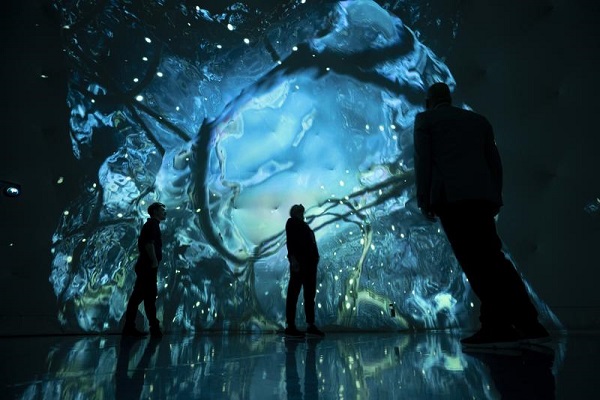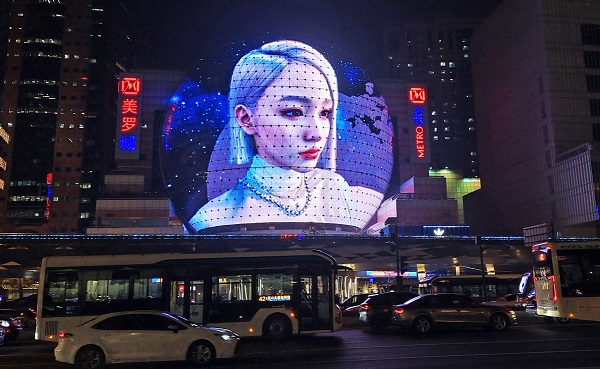Metaverse to merge physical and virtual realms

An immersive opera Laila at the 50th Hong Kong Arts Festival in 2022 that uses artificial intelligence, virtual reality, video-projection mapping, 360-degree spatial sound and real-time sensors to create an interactive experience. [PHOTO PROVIDED TO CHINA DAILY]
Imagine entering into an imaginary world with your best friend physically beyond your reach, or meeting a digital manifestation of your favorite idol. Something like this is impossible with existing technologies today, but may finally be realized with the metaverse.
What is the metaverse? The word comes from the novel Snow Crash, written by Neil Stephenson in 1992, and refers to a digital world parallel to its physical counterpart, where people can use their virtual identities, or "avatars", to live freely in multiple spaces.
According to Mark Zuckerberg, founder of Facebook, the metaverse is the successor to the mobile internet, a completely brand-new and immersive way to express ourselves. Games and videos will look more natural, artistic works will become interactive spaces to explore, and we will be able to meet people from around the world via avatars.
While delivering a speech at a metaverse-themed forum of the China International Big Data Industry Expo on May 26 in Guiyang, Southwest China's Guizhou province, Shen Yang, director of the Metaverse Culture Laboratory based in Tsinghua University's School of Journalism, defined three types of humans in a standard metaverse – natural people, avatars and humanoids, with the latter two helping natural people work in virtual and industrial spaces.
In contrast to the physical universe, the metaverse is a completely artificial world built with blockchain technology. At the same forum, Tan Jianrong, an academician of the Chinese Academy of Engineering, demonstrated the metaverse's incredible ability to revive historical figures using a real example – a virtual concert given in Hangzhou by Chinese singer Deng Lijun, who passed away many years ago. He also envisioned a scenario where the singer sings a currently popular song by extracting her voiceprint – a digital model of a person's unique vocal characteristics.

World's first glass-free spherical jumbo 3D screen at a shopping center in Shanghai's downtown Xujiahui area shows the visual effects of the metaverse in January. [Photo by CHEN YUYU/FOR CHINA DAILY]
In addition, the metaverse is considered a decentralized platform that grants more autonomy and ownership to people, rather than institutions. This view was supported by Shan Zhiguang, a senior official from the State Information Center, who predicted that in an ideal version of the metaverse, all vehicle information will be stored not at any automobile management institutes, but in car owners' own personal databases.
The latest research indicates that people today spend about 44 years of their life staring at a screen, which justifies why the metaverse must be built and analyzed thoroughly. However, the immersion offered by the metaverse may require at least 1,000 times the computing power we use today, which might be inaccessible within the next 10 years, as pointed out by He Baohong, director of the CAICT Cloud Computing and Big Data Research Institute.
As an exciting direction of the next-generation internet and a profitable frontier, the rosy prospect of metaverse has been widely shared by the majority of technology giants, including Facebook, Microsoft, and ByteDance.
But what also needs to be our top priority is the potential danger of the metaverse, in terms of ethics, economy, regulation, legislation and many other aspects. Only when we properly address these problems can we use it to its full potential.
Presented by China Daily.
黔ICP备05001922号
All Rights Reserved.
Presented by China Daily.
黔ICP备05001922号



